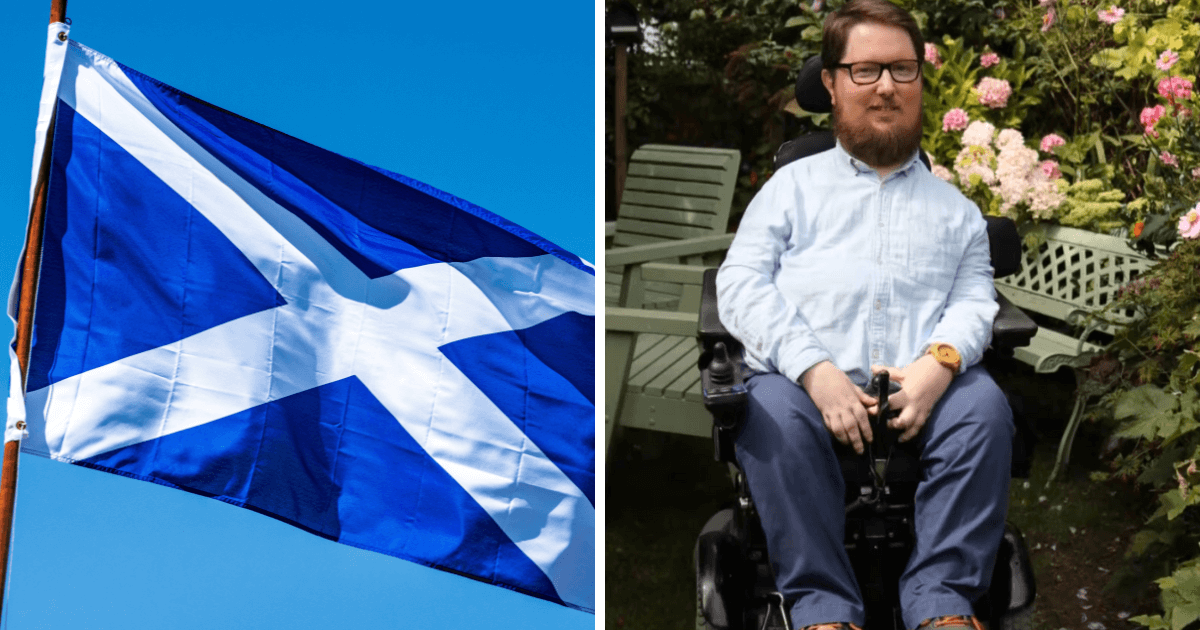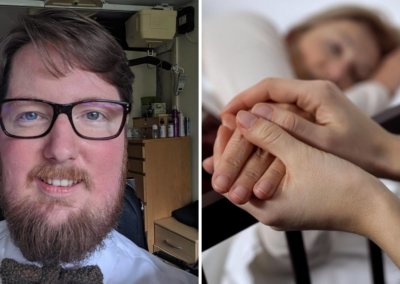A leading disability rights campaigner and assisted suicide opponent has been excluded from taking part in an assisted suicide debate at Edinburgh University because of a lack of wheelchair access.
Disability Studies scholar at the University of Leeds, Dr Miro Griffiths, who is a wheelchair user due to having spinal muscular atrophy, was due to participate in a debate hosted by the Edinburgh Union, a debating society that says it is “designed to champion free and open debate in Scotland”. However, Griffiths was unable to take part because a lift at the venue, Rainy Hall, would be unable to accommodate his power wheelchair.
Responding to the exclusion, Griffiths said, “[T]here’s a dark irony to this whole situation. Disabled people would be disproportionately harmed by an assisted suicide law, yet their voices are being screened out. Legislation is being progressed in the face of opposition from disabled people’s organisations across the UK”.
Griffiths added, “Society excludes disabled people and those with significant health conditions through inaccessible environments, negative attitudes, and non-supportive policies. This affects how people value themselves and decide whether life is worth living”.
“This exclusion is exactly why the bill is dangerous”
Griffiths was due to join students, politicians, and medical experts in debating the legalisation of assisted suicide. The debate came after Liam McArthur’s Assisted Dying for Terminally Ill Adults (Scotland) Bill progressed to the next stage after 70 MSPs voted in favour of the Bill, with 56 voting against it. This means that only seven MSPs need to change their vote for Bill to fall at the final (Stage Three) vote.
Commenting on Griffiths’ exclusion from the debate, Pam Duncan-Glancy, MSP for Glasgow, the first permanent wheelchair user in the Scottish Parliament, said “When we’re excluded, including because of a lack of physical access, we internalise this. It affects how we value ourselves and yes, it can get too much and we consider whether life is worth living”.
“This exclusion is exactly why the bill is dangerous”.
No support from major UK disability advocate groups for assisted suicide
The incident has highlighted the potential impact of assisted suicide on people with disabilities, many of whom are “absolutely terrified” at the prospect of the legalisation of assisted suicide in Scotland. It also comes at the same time as a separate Bill, the Terminally Ill Adults (End of Life) Bill, which continues to make its way through the House of Lords, proposes legalising assisted suicide in England and Wales.
No major disability advocate groups in the UK – including Disability Rights UK, Scope and Not Dead Yet – support a change in the law to introduce assisted suicide.
Spokesperson for Right To Life UK, Catherine Robinson, said “Dr Miro Griffiths is right to highlight the ‘dark irony’ of his exclusion from the Edinburgh Union debate. It is worrying that the views of people with disabilities on reckless assisted suicide bills are being ignored, while these dangerous and extreme changes to our laws would put them and other vulnerable people at risk and see the ending of many lives through assisted suicide”.
“Focus should now turn away from assisted suicide towards finding ways of providing high-quality care for people with disabilities and those who are terminally ill”.











